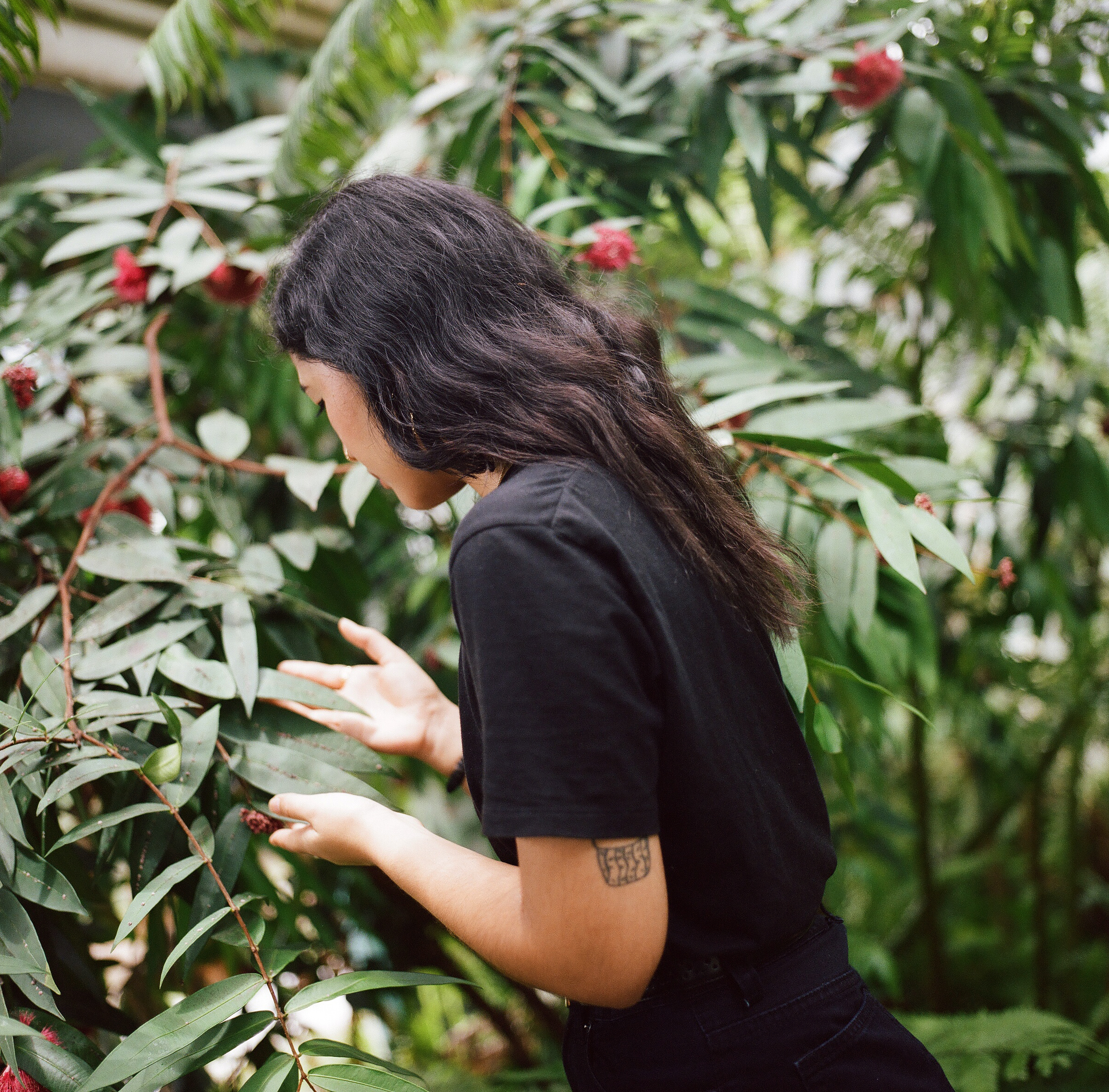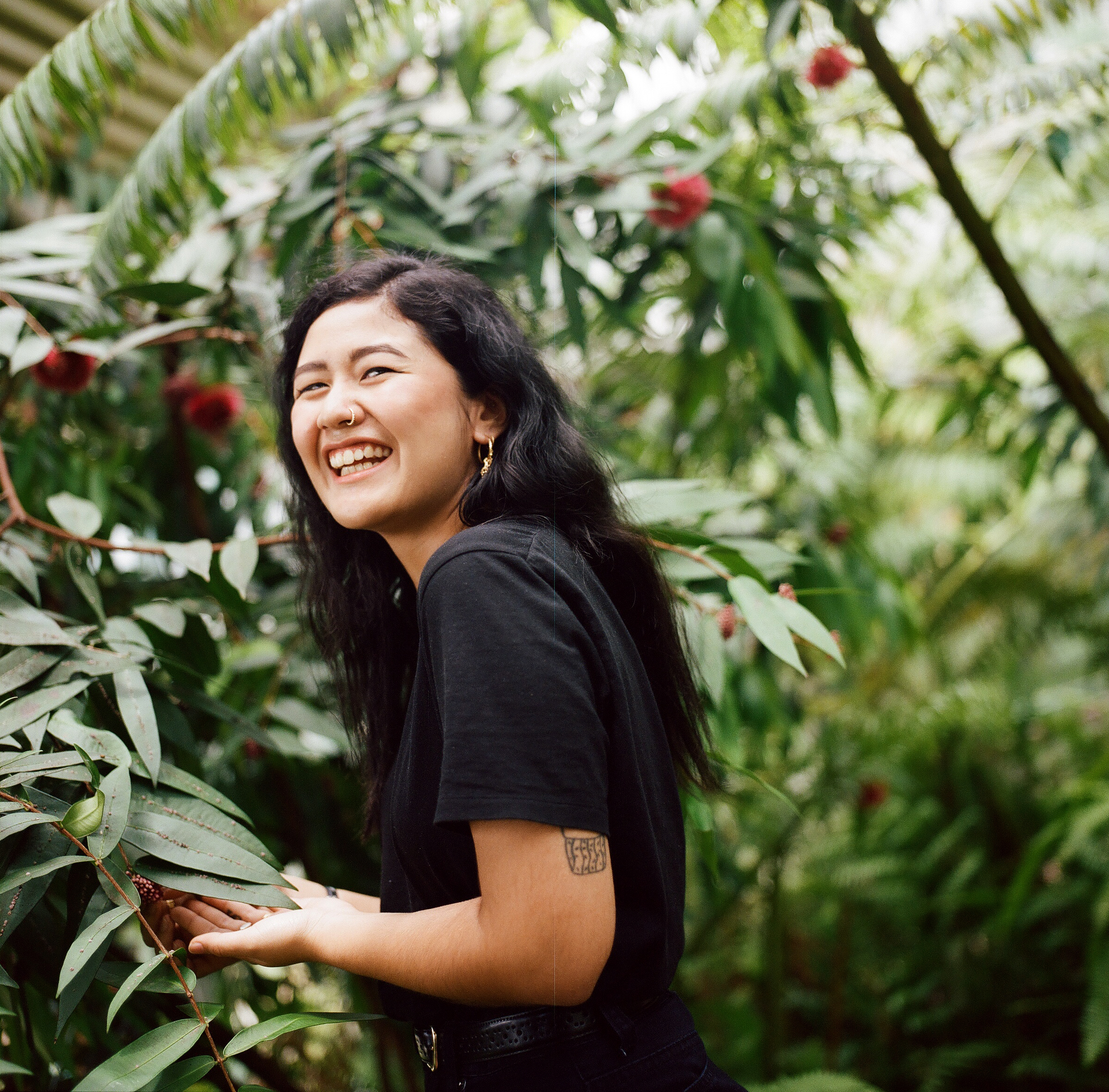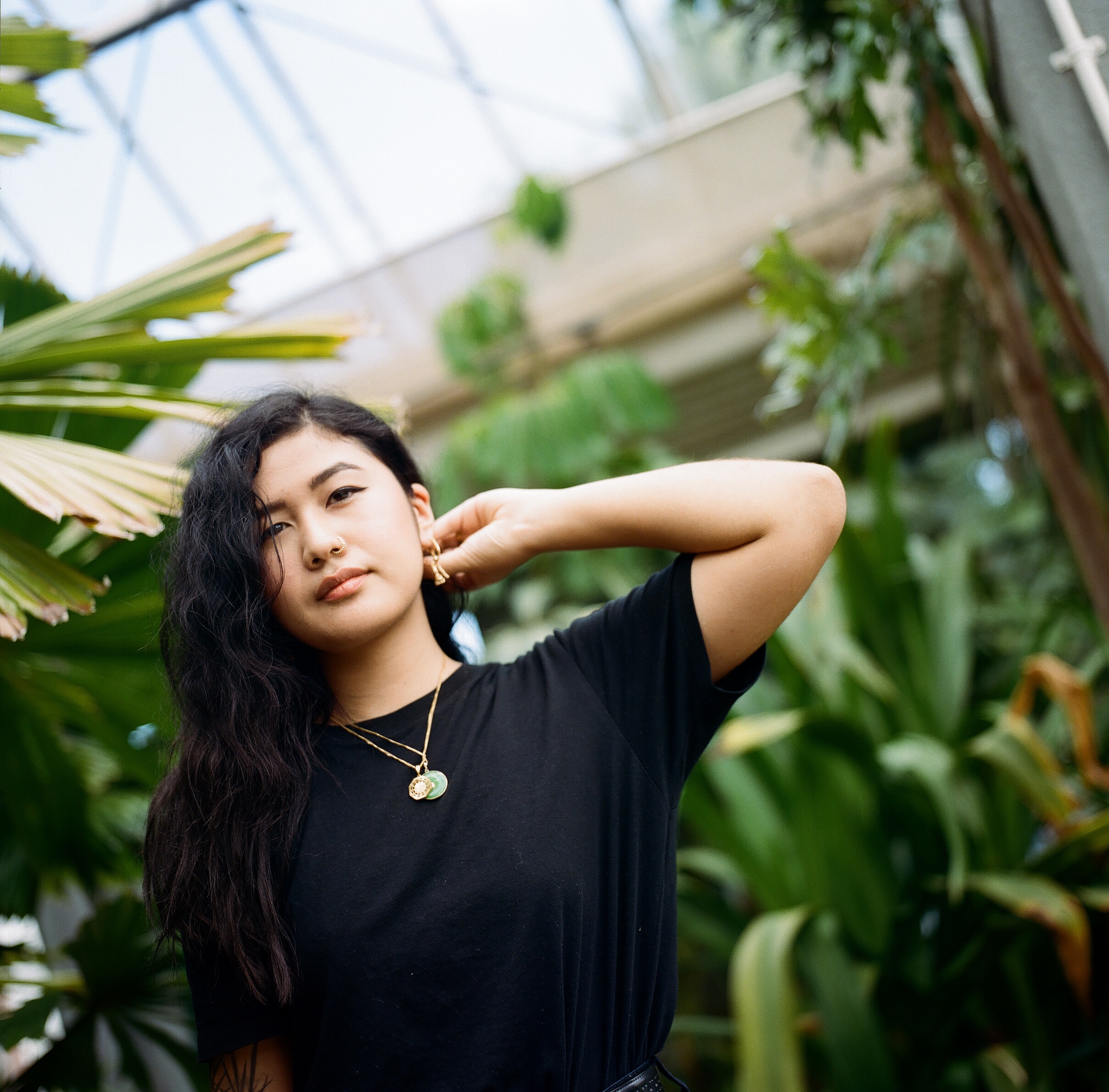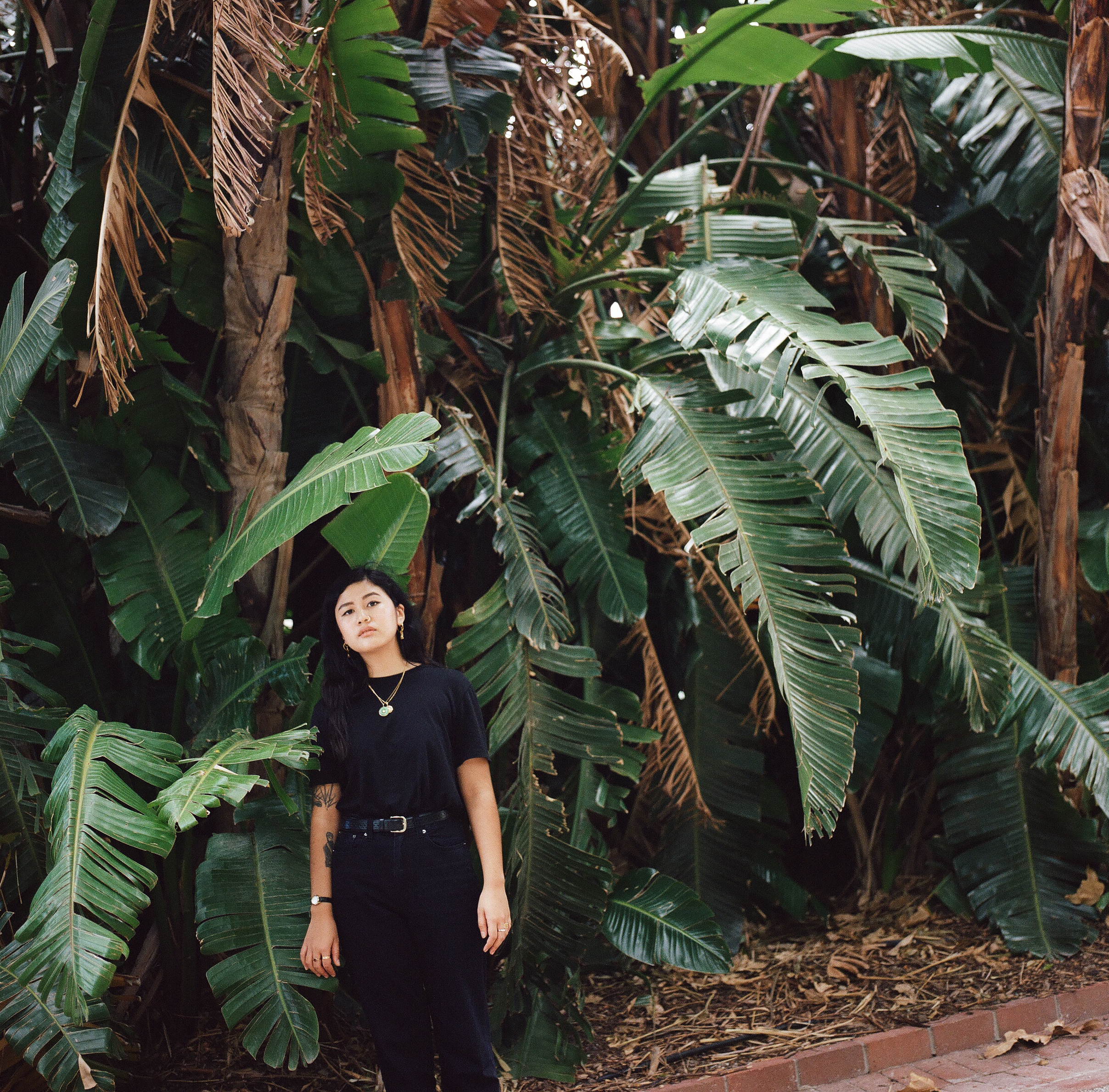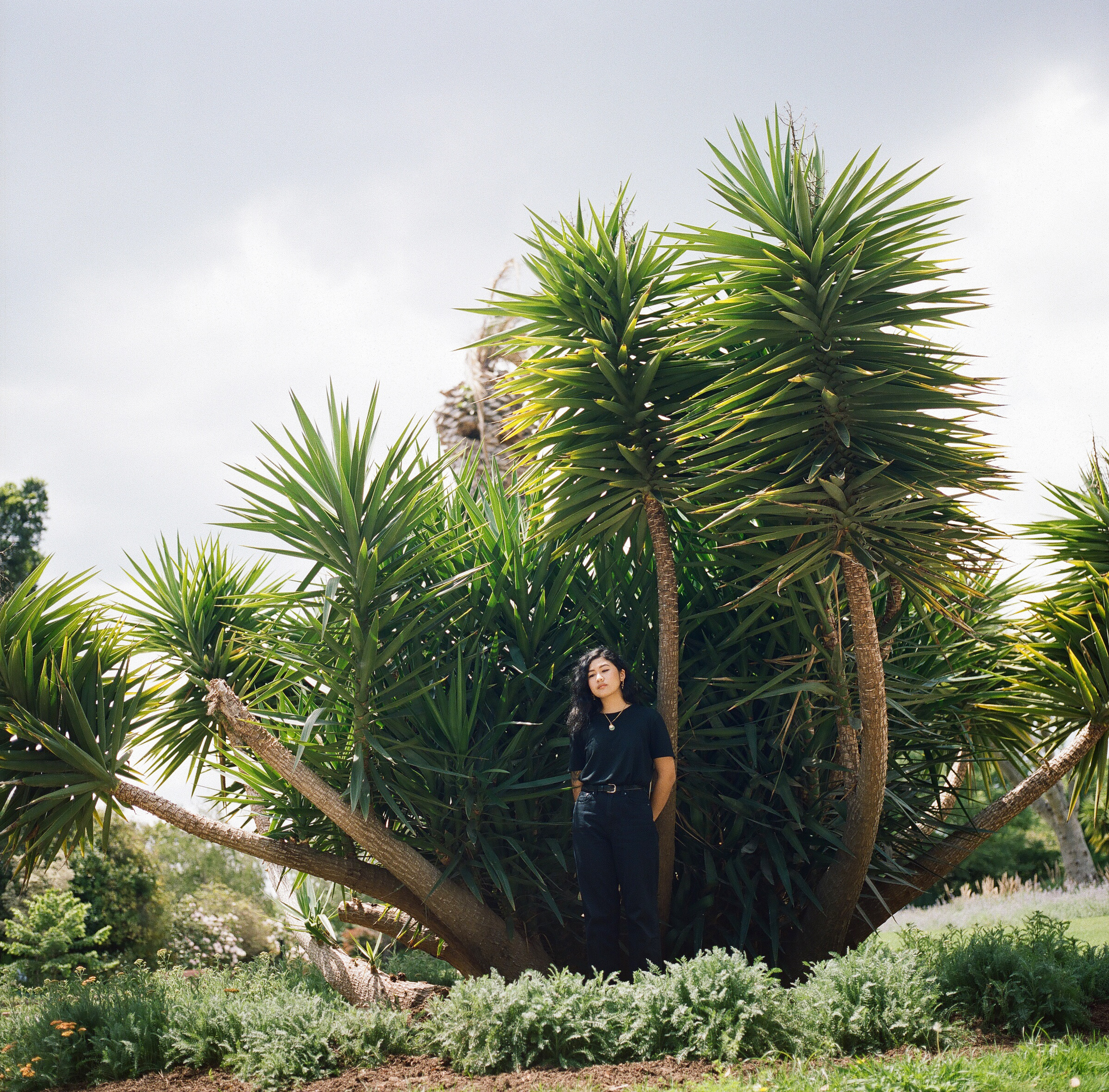Interview #46 — Mindy Gill
by Elizabeth Flux
Mindy Gill is a poet and editor. In 2017 she won the Tom Collins Poetry Prize, a Wheeler Centre Hot Desk Fellowship, the Queensland Premier’s Young Writers and Publishers Award, and her manuscript, August Burns the Sky, was shortlisted for the Thomas Shapcott Poetry Prize. She is Peril Magazine’s Editor-in-Chief.
Mindy spoke to Elizabeth Flux about publication panic, home, and the thin divide between different types of writing.
You’re an award-winning poet in a world where the message we’re told day in and day out is clear—arts is not a career. How did you push past this and get to the point you’re at now?
I never spent much time considering the viability of poetry as career: I understood from the beginning that poetry makes no money. That being said, there is writing and there is a separate work that can go along with it, which sometimes helps with income—grants, awards, residencies. It’s just a matter of not being averse to rejection mails. But all the poets I know often do something else that makes them money.
Writing, and any art form, can of course be a career—it’s just often not the only career. At the QLAs I mentioned that I’d been working forty hours per week as a freelance copywriter, writing about how businesses could best optimise their websites for search engines. The audience laughed, which of course left me feeling very chuffed, if not a little confused, because I hadn’t yet gotten to the punchline. But, thinking about it, what isn’t there to laugh about it? Poet as SEO expert. Who knew?
Even though they’re both grounded in writing, it is kind of like having two completely separate yet connected careers in a way though. Do you feel that doing different kinds of writing professionally – both the projects you choose for yourself and the work you might be assigned as a copywriter – impact at all on one another?
Yes, it uses the same part of my brain—and hands, which very quickly gave me RSI. I think if your professional writing work can help inform your other projects, then that’s an incredibly lucky thing. Otherwise, the two do feel very separate to me—a totally different way of thinking about and working with words. All I can say that poetry and SEO copywriting share with one another is the understanding of the economy of words, but for very different reasons: one for beauty, one for its opposite.
What are the themes you find yourself being drawn to a writer?
I’ve been away from home on and off since July last year, and I think because of this transience much of my recent writing has a lot to do with impermanence, but also happiness. When I’m in a new place I tend to settle into it quite quickly, which has led to a year of fleeting but intense moments of joy, and then of course the reverse. But I’ve also been missing coffee from this one place I normally go to, so I have to say that a startling—and embarrassing—number of new poems have a line about coffee. I think instead of junking the lines I should just make it into one poem, desperate for espresso.
Please, please do this. Other than coffee though, since it’s something you do explore in your work, what do you think it takes for a place to become home?
These days I am happy if there is a room with nice light and a desk, a bathroom bigger than a hotel elevator, and a few nice coffee shops within walking distance where I can set up my laptop and some books on the table. And a city with kind strangers will always make a place feel familiar.
Could you tell us a bit about August Burns the Sky?
August Burns the Sky is my first collection of poems, as yet unpublished, and for now as yet unfinished. I thought I’d completed it in June last year, that it was going to be a slim book, and that I’d begin the second collection more or less the next morning fresh and at the desk, business as usual. Thankfully I realised that writing a book does not happen on autopoet or autopilot, and why was I in such a rush to publish anyway? I’m now revisiting August slowly and carefully, and am working on building it up and out, because you only get one first book.
Very true—and an idea that seems to often get lost in the 'publication panic; that’s out there. How did you come to the decision to take your time to get it right?
Because I did get lost in the publication panic – or, more correctly, the application panic. I spent two very long months applying for a number of things, and I think I wrote over thirty applications in that time. I’m glad I did because some wonderful things came out of that, but I have no idea how I had the stamina. I think I used as an excuse not to write.
I can’t take credit for the decision to take my time—I’m nowhere near wise enough to come to such a conclusion myself, or have the foresight. It was something two people told me separately, both of whose word is gospel when it comes to my writing. And also my life, if I’m being honest. It really was the best thing I could have heard.
What are you working on at the moment?
I’ve spent the last month at a residency a few hours outside of Bangalore, at the Odissi dance Gurukul, Nrityagram. The writers’ house is beside a huge stone amphitheatre, where the sun rises on one side and sets on the other. I have never seen cleaner light than I have here, nor had such slow mornings. I love cities, but this has been an incredible environment to work in. I’ve been working on prose and poetry, and the poems that have been coming out of my stay here have a new calmness. The book so far has been one about impermanence and urgency, but the poems, they are a-changin’.
In addition to your work as a poet, you’re also the Editor-in-Chief of Peril Magazine. Can you tell us a bit about the magazine and the work you do there?
Peril was founded in 2006 by Hoa Pham, who I feel sure in saying was one of the first to pave the way for mainstream reading and discussion of Asian-Australian writing, arts, and culture. For a long time, we were the only such publication, which is why it has been great in the last few years to see so many new players on the field. It was getting lonely out here.
I stepped into the position of editor in March last year, with a great amount of continuing support from Eleanor Jackson, our previous Editor-in-Chief and current Board Chair. I had some very big shoes to fill, and it’s been heartening to get feedback from readers and contributors about how much they’ve enjoyed an edition that I’d edited. There’s nothing else like working with writers and publishing great writing, except maybe for writing great writing. It’s a pleasure and a privilege to work alongside the people I work with.
Why do you think it’s so important to have spaces and platforms like Peril?
Peril is a place where writers and readers come from a background of shared understanding. The stories that we publish are the kind that may not always find homes in other Australian literary journals, and the volume of voices and perspectives that we publish in each edition is unseen outside of other journals’ Asia-themed editions. While such editions are great at shifting the mainstream readership’s lens toward new writing, writers cannot wait for these one-offs to share their stories and be paid for them. Among other things, Peril is a publication that treats each writer with sensitivity. Not because we must, but because we have all been on the other side of the Submittable page, the rejection email, the track changed document.
You’re balancing a lot of things: writing poetry, being a copywriter and editing a publication. How do you keep them separate—and how do you find time for yourself beyond your work?
It’s impossible to keep them separate. Thanks to the financial aid of the QLAs, I’ve been lucky enough to take some time off from copywriting in the last few months. It’s been a huge help, and the feeling of being held hostage by my eleven-inch pink laptop lessens each day.
I’m a slow writer, and tend to write best in bursts, so when an edition is in full swing I focus entirely on that. Working with writers invigorates my own writing, so this kind of ebb and flow works for me. In terms of carving out time for myself – I find that working grounds me. If I take too much time off I freak out. Which is not to say I am writing all the time, but if I stop thinking about writing, or reading or taking notes, I end up on Netflix and Uber Eats for weeks and stop seeing people. Routine is vital, as is getting out of the house for a slice of cake or a real tiramisu, the kind generous with the Marsala.
Do you have any advice for emerging writers?
One of the best pieces of advice that I finally listened to, and relayed earlier: don’t rush to publish. The internet is going to outlive us all, which is why a poem written in rhyming couplets titled ‘The Horse at Midnight’, which I wrote when I was seven years old, still appears in the early search pages when you google my name. Other than that, get some work done. Reading is great, and incredibly important, talking to writers is also good and important. But writers write. There is no other secret.
What are you currently listening to?
Madeleine Peyroux, Fiona Apple. The Animals, The Zombies, The Rolling Stones. I am a huge Gilbert O’Sullivan fan, which I used to never disclose but now disclose at every opportunity. And Billie, Ella, Nina!
What are you currently reading?
I’m reading Jack Gilbert’s Refusing Heaven, which is one of the books I travel with, so am always reading. A.K. Ramanujan’s Second Sight, Jane Kenyon’s Let Evening Come, Derek Walcott’s The Bounty. I’ve been reading poems by Erika L. Sanchez and Meghan O’Rourke online, because I’m overseas and trying not to bring home too many more books. Jeet Thayil’s The Book of Chocolate Saints, slowly, as it should be read. And re-reading Sarah Holland-Batt’s The Hazards all the time.
How do you practice self-care?
By getting perspective. And dividing the day into manageable thirds.
What does being Asian-Australian mean to you?
Most of the time, it means feeling very lucky.
Find out more
Interview by Elizabeth Flux
Photographs by Leah Jing McIntosh


